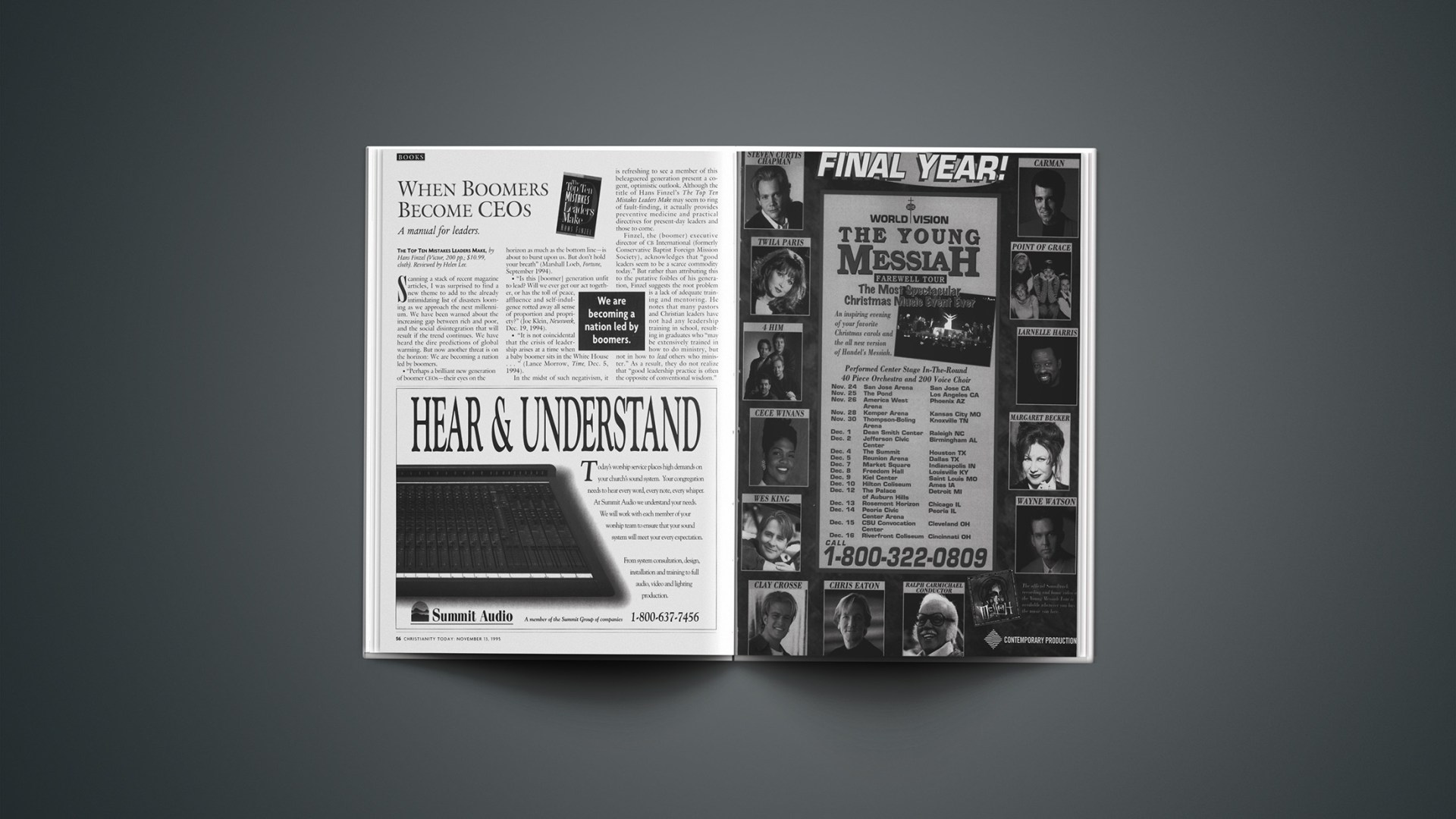The Top Ten Mistakes Leaders Make, by Hans Finzel (Victor, 200 pp.; $10.99, cloth).
Scanning a stack of recent magazine articles, I was surprised to find a new theme to add to the already intimidating list of disasters looming as we approach the next millennium. We have been warned about the increasing gap between rich and poor, and the social disintegration that will result if the trend continues. We have heard the dire predictions of global warming. But now another threat is on the horizon: We are becoming a nation led by boomers.
* “Perhaps a brilliant new generation of boomer CEOs—their eyes on the horizon as much as the bottom line—is about to burst upon us. But don’t hold your breath” (Marshall Loeb, “Fortune,” September 1994).
* “Is this [boomer] generation unfit to lead? Will we ever get our act together, or has the toll of peace, affluence and self-indulgence rotted away all sense of proportion and propriety?” (Joe Klein, “Newsweek,” Dec. 19, 1994).
* “It is not coincidental that the crisis of leadership arises at a time when a baby boomer sits in the White House … ” (Lance Morrow, “Time,” Dec. 5, 1994).
In the midst of such negativism, it is refreshing to see a member of this beleaguered generation present a cogent, optimistic outlook. Although the title of Hans Finzel’s “The Top Ten Mistakes Leaders Make” may seem to ring of fault-finding, it actually provides preventive medicine and practical directives for present-day leaders and those to come.
Finzel, the (boomer) executive director of CB International (formerly Conservative Baptist Foreign Mission Society), acknowledges that “good leaders seem to be a scarce commodity today.” But rather than attributing this to the putative foibles of his generation, Finzel suggests the root problem is a lack of adequate training and mentoring. He notes that many pastors and Christian leaders have not had any leadership training in school, resulting in graduates who “may be extensively trained in how to do ministry, but not in how to lead others who minister.” As a result, they do not realize that “good leadership practice is often the opposite of conventional wisdom.”
Some of Finzel’s ideas are not new: the first “mistake” that he highlights is “the age-old problem of domineering, autocratic, top-down arrogance,” which, though its occurrence predates Scripture, is still relevant today. Other chapters seem fresher, like the one titled “No Room for Mavericks?” in which leaders are exhorted to give young, creative minds a chance to exert influence in an organization.
“Top Ten Mistakes” is not deeply analytical. It resembles an almanac, replete with nuggets of wisdom from leadership gurus, classic Christian authors, and references to Scripture. But this is an almanac for the nineties, a sped-up version, sometimes trying to cram too much information into a single page. Still, it is an exceedingly practical book, with suggestions sprinkled throughout to help readers implement Finzel’s strategies.
“Consider this book a Boomer Bible on how to lead,” Finzel writes. And if he and other leaders, boomer or otherwise, can put these lessons into practice, we will have one less worry as we enter the twenty-first century.
Copyright © 1995 Christianity Today. Click for reprint information.









